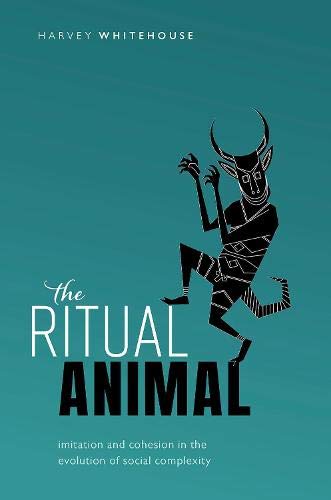

Most ebook files are in PDF format, so you can easily read them using various software such as Foxit Reader or directly on the Google Chrome browser.
Some ebook files are released by publishers in other formats such as .awz, .mobi, .epub, .fb2, etc. You may need to install specific software to read these formats on mobile/PC, such as Calibre.
Please read the tutorial at this link: https://ebookbell.com/faq
We offer FREE conversion to the popular formats you request; however, this may take some time. Therefore, right after payment, please email us, and we will try to provide the service as quickly as possible.
For some exceptional file formats or broken links (if any), please refrain from opening any disputes. Instead, email us first, and we will try to assist within a maximum of 6 hours.
EbookBell Team

4.8
44 reviewsThe ritual animal
longs to belong. Rituals are a way of defining the boundaries of social
groups and binding their members together. The ritual modes theory set
out in this book seeks to unravel the psychology behind these processes,
and to explain how ritual behaviour evolved, including how different
modes of ritual performance have shaped global history over many
millennia. Testing the theory has meant designing experiments run with
children in psychology labs and on remote Pacific islands, gathering
survey data with armed insurgents in the Middle East and Muslim
fundamentalists in Indonesia, monitoring heart rate and stress among
football fans in Brazil, and measuring changes in the brain as people
observe traditional Chinese rituals in Singapore. The results of all
this research point to new ways of addressing cooperation problems: from
preventing violent extremism to motivating action on the climate
crisis. Although this book is about the role of ritual in the evolution
of social complexity, more broadly it models a new approach to the
science of the social—an approach that is driven by real-world
observation but grounded in the cognitive and evolutionary sciences.
More ambitiously still, it shows how cumulative theory building can be
used to deliver practical benefits for society at large, perhaps even
addressing problems on a global scale by harnessing the formidable
cohesive and cooperative capacities of the ritual animal.